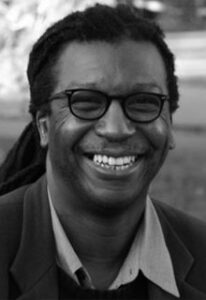rev. of Waterborne by Linda Gregerson
Waterborne
Poems by Linda Gregerson. Houghton Mifflin, $23.00 cloth. Reviewed by H. L. Hix.
“Eyes Like Leeks,” the first poem in Linda Gregerson’s new collection,
Waterborne, distills in a parenthesis the problematic that pervades the poems: “(how / odd / to be this and no other and, like all / / the others, marked for death).” Accident divides us from others and from the parallel lives we might have lived had this or that been different; necessity joins us to death.
Accident sometimes occurs as something nature does to us. For example, genetic accident deprives “My young friend / / — he’s seven — ” (and apparently autistic) of emotional understanding others acquire effortlessly: he “touched his mother’s face last night / and said
It’s /
wet and, making the connection he has had / / to learn by rote,
You’re sad. / It’s never / not like this for him.” Or for his mother. When a later poem refers to the same child, it makes explicit nature’s threat: any particular accident is an exception, but accident is the rule. “For want of an ion the synapse was lost. / / For want of a synapse the circuit was lost. / For want / of a circuit, the kingdom, the child, the social / / smile. And this is just one of the infinite means by which / the world / may turn aside.” The particular accident that injures you may spare me, but accident will injure us both.
Sometimes, as Gregerson’s poems show, accident occurs as what we do to each other. In one poem, the speaker, a doctor in London, recalls his internship in a Boston emergency room, and the night no one came in because the NBA finals had gone to a seventh game and that game into overtime, “and nothing, not a nearly / severed thumb nor classic gallstone, had / been able / to peel these people away till the broadcast / / was over,” people who included a “man with his ten-year-old son, the son / cyanotic / from asthma.” Or again, in another poem, referring to an abused child: “You know / / what the surgeon found in his scalp? / Pencil lead. / Six broken points of it, puncture wounds / / some of them twelve months old.”
Whatever the source of accident, necessity always follows, bringing death, a fact that does not deprive us of joy, but does mean we must take joy from a world that doesn’t give it freely. “My / hour with you (one / breath, one more) was theft.”
That Gregerson so fixedly casts a cold eye on life, on death, puts her out of step with our age. Her awareness that, as Kierkegaard says, “the negative is present in existence” manifests itself in thematic and formal continuities that give
Waterborne a momentum like the river — one of its recurring metaphors — that gets stronger as it progresses; yet it doesn’t overshadow the individual poems, some of which (“Maculate,” “Waterborne,” “Pass Over,” “Cranes on the Seashore,” and “Grammatical Mood”) will be read and treasured as long as the English language survives.
Waterborne seeks no consolation, and offers none. Gregerson confronts life as it is, not as she wishes it were. Only on those terms can a poet give her readers, as Gregerson does, the world.
H. L. Hix’s most recent poetry collections are Surely as Birds Fly
and Rational Numbers.
His collection of essays on poetry, As Easy as Lying,
is forthcoming from Etruscan Press.

